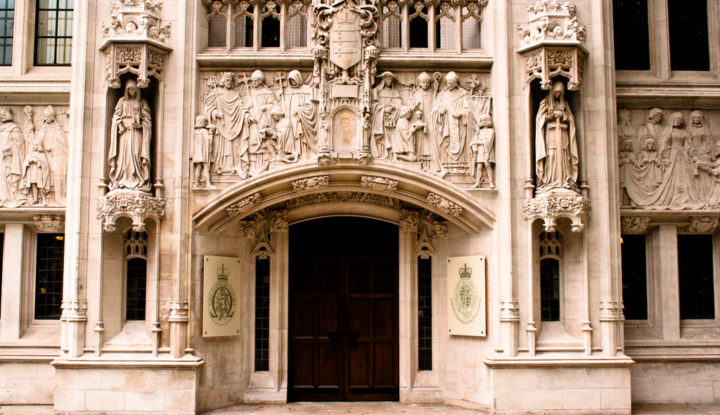In the past fortnight, the issue of abortion in Northern Ireland has been thrust onto the front pages. First, voters in the Republic of Ireland supported two-to-one repeal of the country’s near-total ban on abortion. Then Stella Creasy MP led an impassioned debate in the House of Commons on removing abortion from criminal law across the UK, most significantly impacting upon Northern Ireland. And, today, in a case Humanists UK intervened in, the UK Supreme Court has ruled that Northern Ireland’s prohibition on abortion in the cases of rape, incest, or where the foetus will not survive to full term or will during or shortly after birth (fatal feotal abnormality) is not compatible with human rights legislation. This surely means the UK Government must now act to change the law.
The 1967 Abortion Act has never applied in Northern Ireland. The Victorian law governing abortion in Northern Ireland, the 1861 Offenses Against the Persons Act, is one of the most restrictive in Europe. Abortion is unlawful in all but the most extreme cases. The criminal sanctions imposed upon women are amongst the harshest in the world, with the maximum sentence being life imprisonment.
A termination is only lawful when it constitutes a threat to a woman’s life. There is no exception made for pregnancies that arise as a result of rape, incest or where there is a diagnosis of fatal foetal abnormality, which are the subject of today’s Supreme Court judgment.
Current restrictions force women to either travel to the Great Britain to receive treatment (which over 1,000 women and girls do each year), risk prosecution for procuring illegal online abortion pills, or continue their pregnancies against their wishes and in violation of their rights.
But all that must now change. The Supreme Court has ruled that the current law is incompatible with Article 8 of European Convention of Human Rights – that is the right to respect for private and family life – in those three circumstances. Two judges went even further and held that the law in Northern Ireland is also incompatible with the prohibition on torture.
Today’s ruling sends a very strong and very clear message to the UK Government. It cannot wait for the Northern Ireland Assembly to reconvene and potentially act – it must now act itself.
Lord Mance, the Deputy President of the Supreme Court, made the case for an immediate change in the law very powerfully in his comments in the judgment. He wrote that:
‘The need for amendment is evident… the present legislative position in Northern Ireland is untenable and intrinsically disproportionate in excluding from any possibility of abortion pregnancies involving fatal foetal abnormality or due to rape or incest… the present law clearly needs radical reconsideration. Those responsible for ensuring the compatibility of Northern Ireland law with the Convention rights will no doubt recognise and take account of these conclusions, at as early a time as possible, by considering whether and how to amend the law, in the light of the ongoing suffering being caused by it.’
Theresa May’s Government has up to now justified its inaction by arguing that abortion policy is a devolved matter in Northern Ireland, and therefore any reform must be agreed upon by the Northern Ireland Assembly.
Today’s judgment has clearly put yet another nail in the coffin of that defence. Despite the obvious point that the Northern Ireland Assembly has not been in existence for over a year and doesn’t look likely return in the near future, and the fact that it failed to act for many years before then, the fundamental point is that access to abortion is a human rights issue. Human rights obligations are not devolved, but remain the responsibility of the UK Government in Westminster. Therefore, Theresa May not only has the power to act, but a moral responsibility to do so.
So, in response to this judgment the Westminster Parliament must now act. The best way to achieve this would be to repeal the relevant parts of the 1861 Act. This would have the effect of ending the ban on abortion in Northern Ireland and allowing the procedure to be governed by medical regulation, like all other medical procedures.
